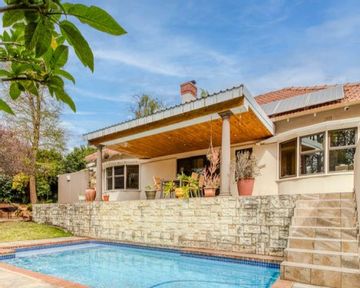Rental growth surges in Q2 2024
A sudden surge in rental growth during Q2 2024 brings a welcome surprise for South African rental agents and landlords following a decline in the first quarter. According to the PayProp Rental Index, year-on-year rental growth rebounded to 4.9% in April from 3.6% in March, then fell to 4.5% in May before rising to 5.2% in June. This marks a new post-pandemic high and the fastest year-on-year rental growth in any month since December 2017.
Johette Smuts, Head of Data Analytics at PayProp, says that June 2024 was the first time rental growth had outpaced inflation in almost five years. “This is good news for estate agents and landlords as it signals higher real-terms returns. We’re hopeful that a continued rebound will assist agents in building more profitable and resilient businesses in an otherwise challenging economic environment,” says Smuts.
With inflation falling further still in July, economists foresee that interest rate cuts could start as early as September. “Rate cuts would lower bond payments and draw more first-time home buyers back to the market, reducing demand for rental properties,” says Smuts.
At the end of the quarter, the average national rent in South Africa stood at R8 785 – R410 more than in Q2 2023. Encouragingly, all provinces experienced positive rental growth in Q2 after a year-on-year decrease in KwaZulu-Natal's average rent in the previous quarter.
A surprise provincial leader
The Western Cape has had the highest rents in South Africa since 2016, and in Q2 2024 the average rent there stood out at R10 673. Perhaps not surprisingly in a hot rental market, the province experienced average or below-average rental growth in recent years. Against this backdrop, its Q2 growth rate of 9.7% comes as a real surprise. In fact, year-on-year growth now appears to be accelerating, reaching 11.7% in June - the fastest recorded in the Western Cape since December 2017.
At the other end of the spectrum, KwaZulu-Natal managed just 1.5% in rental growth. This was the lowest of any province, but still an improvement on the negative growth recorded in Q1. Rents grew by R128 year-on-year to reach R8 945. KwaZulu Natal has been one of the net losers from South Africa’s semigration trend, which has reduced local demand for rental homes.
Gauteng recorded a third consecutive quarter of below-average rental growth, but the 3.8% measured in Q2 2024 was an improvement on the previous two quarters. The average rent in Gauteng has now surpassed the R9 000 mark to reach R9 018 - South Africa’s third highest rent.
Tenants are worse off, but not because of rent inflation
In Q2 2024, the average tenant in South Africa spent 46.7% of their income on debt repayments and 30.3% on rent, leaving them with 23.0% of their income to cover their other expenses compared to 27.2% in Q2 2023. Smuts says that rising average incomes have been outpaced by expenses due to high interest rates. “Rent as a percentage of income didn’t move much year-on-year, but unfortunately, debt repayments did, jumping up from 43% of income a year earlier.”
But behind the averages, there are some big differences between income brackets. Those earning R40 000 a month or less are much more burdened by debt than those on higher incomes.
According to the Rental Index data, tenants spend more than half their net income on debt repayments on average. But in income brackets above R40 000, debt spending falls sharply in proportion to income, and disposable income rises to match. Those earning R80 000 and up have 54.1% of their net income left over after rent and debt expenses.
Smuts says that whilst the pressure of debt repayments has increased year on year, it hasn’t stopped people from paying their rent. “Just 18.1% of tenants were in rent arrears in Q2 2024 compared to 18.4% a year earlier, and they also owed slightly less on average.”
She cautions agents and landlords to not put tenants under heavy financial burden, but also says that there is still room for rental growth. “A common rule of thumb for rental affordability is that tenants shouldn’t spend more than 30% of their income on rent. However, with smart budgeting, a rental share of a wallet higher than this can be sustainable. Tenants in hot rental markets are often used to paying more, and some estate agents have already set more generous affordability ceilings when vetting applicants for their rental properties.”

